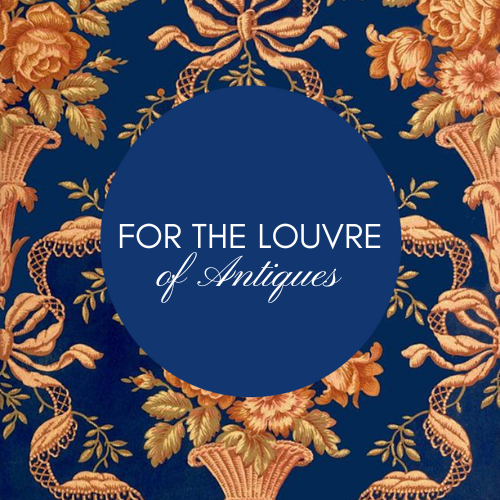Antique Book Tantalus with Baccarat Decanter and Six (6) Glass Cordials
Antique Book Tantalus with Baccarat Decanter and Six (6) Glass Cordials
No se pudo cargar la disponibilidad de retiro
Compartir
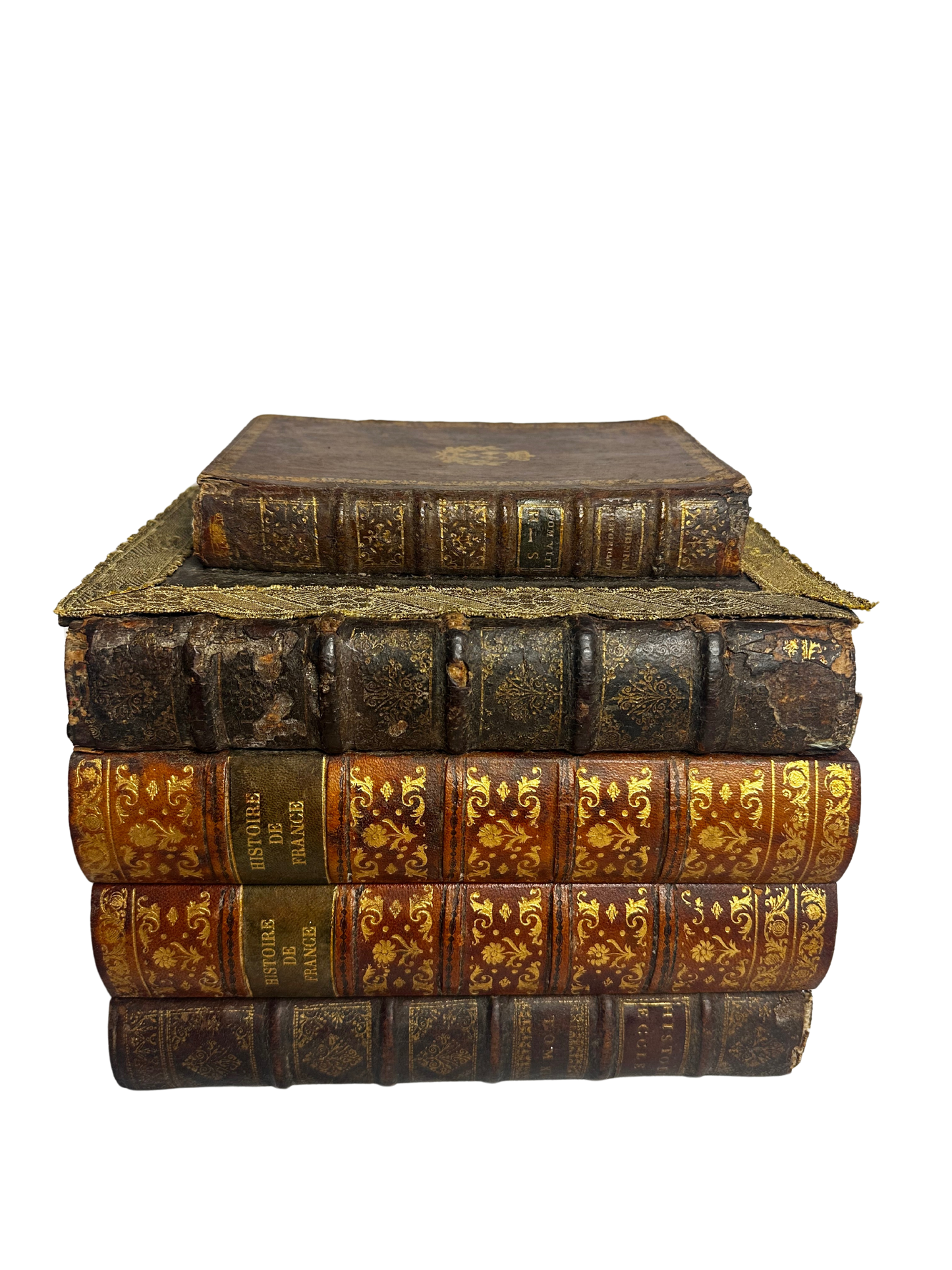
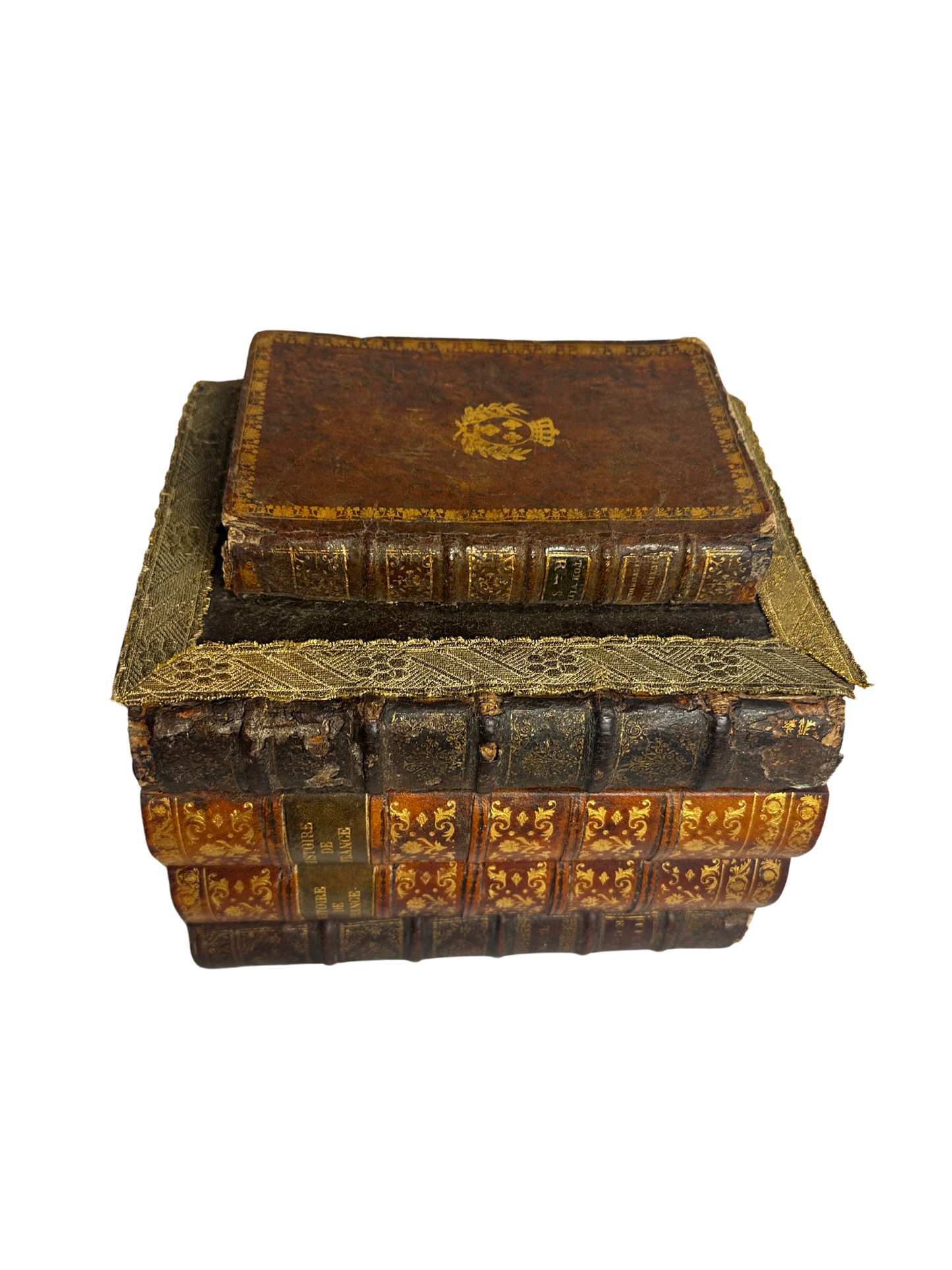
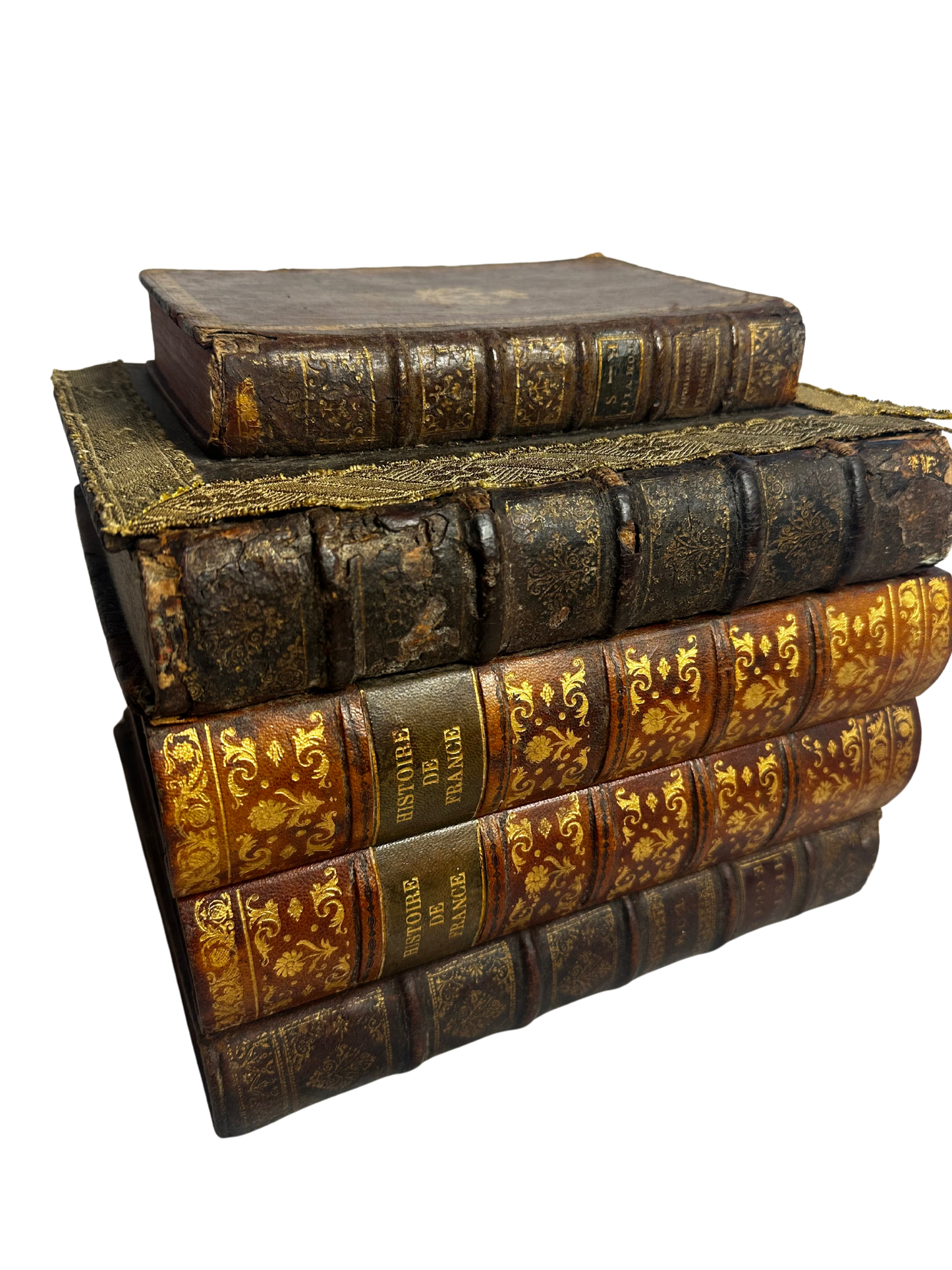


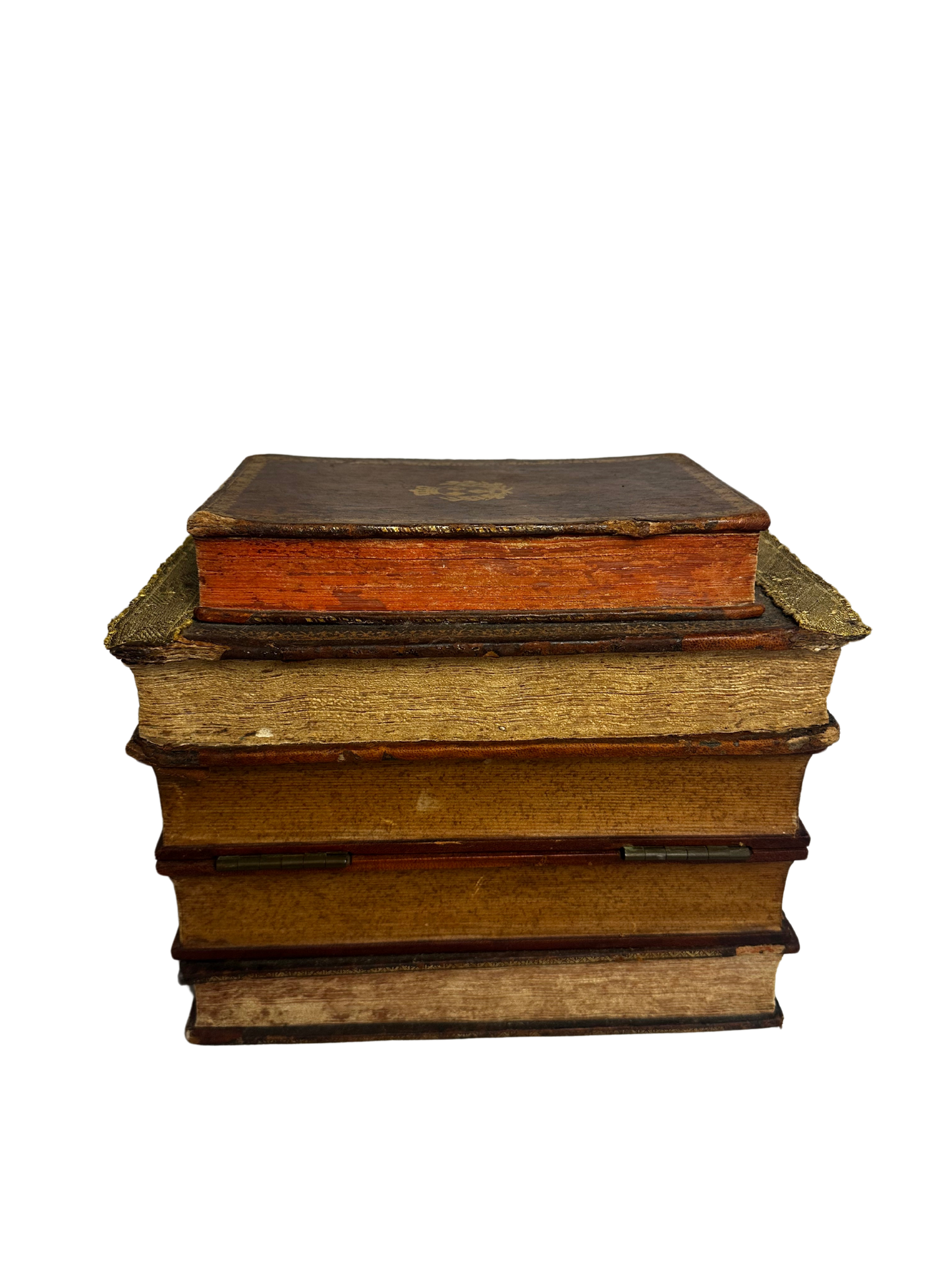
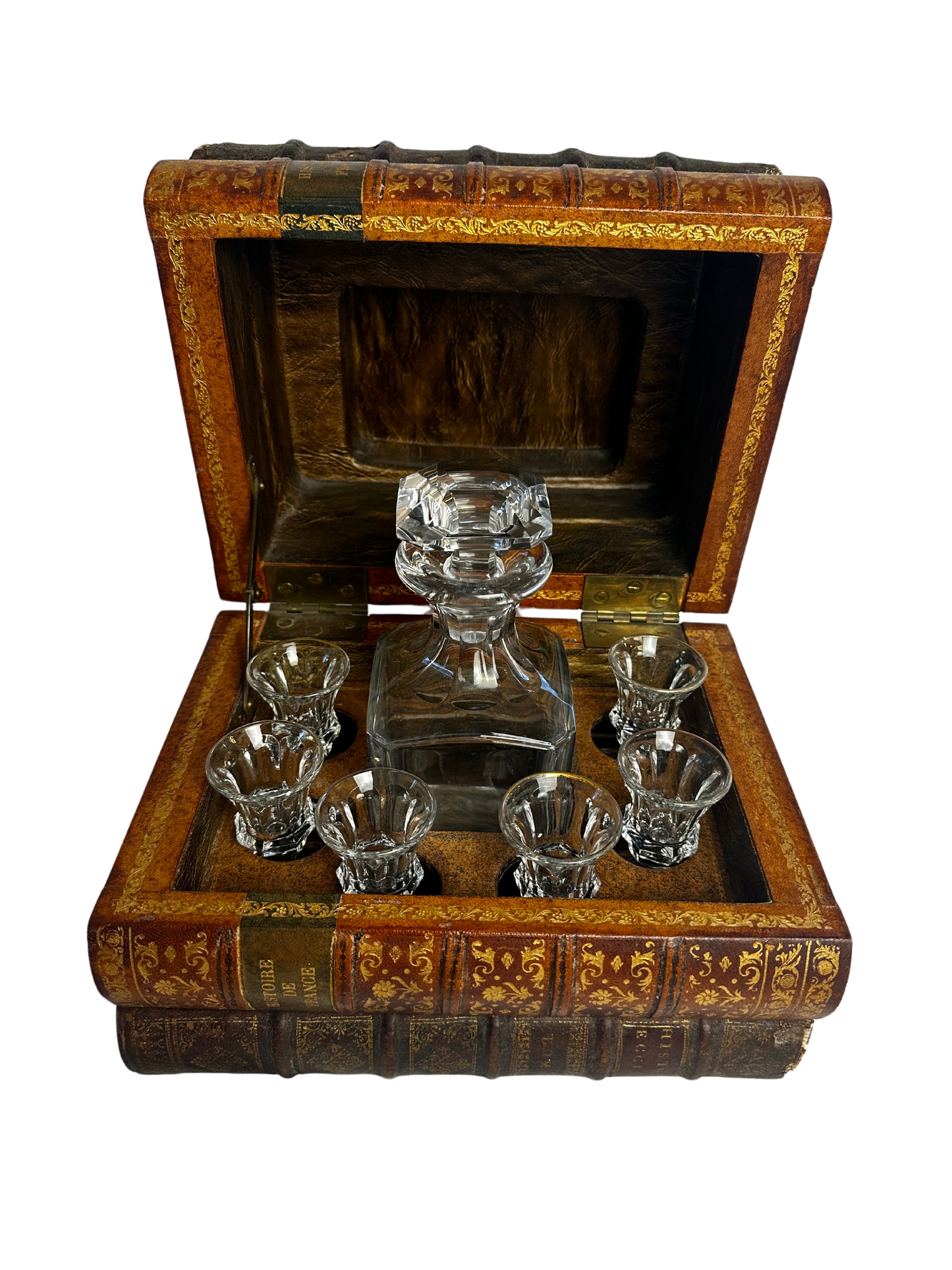
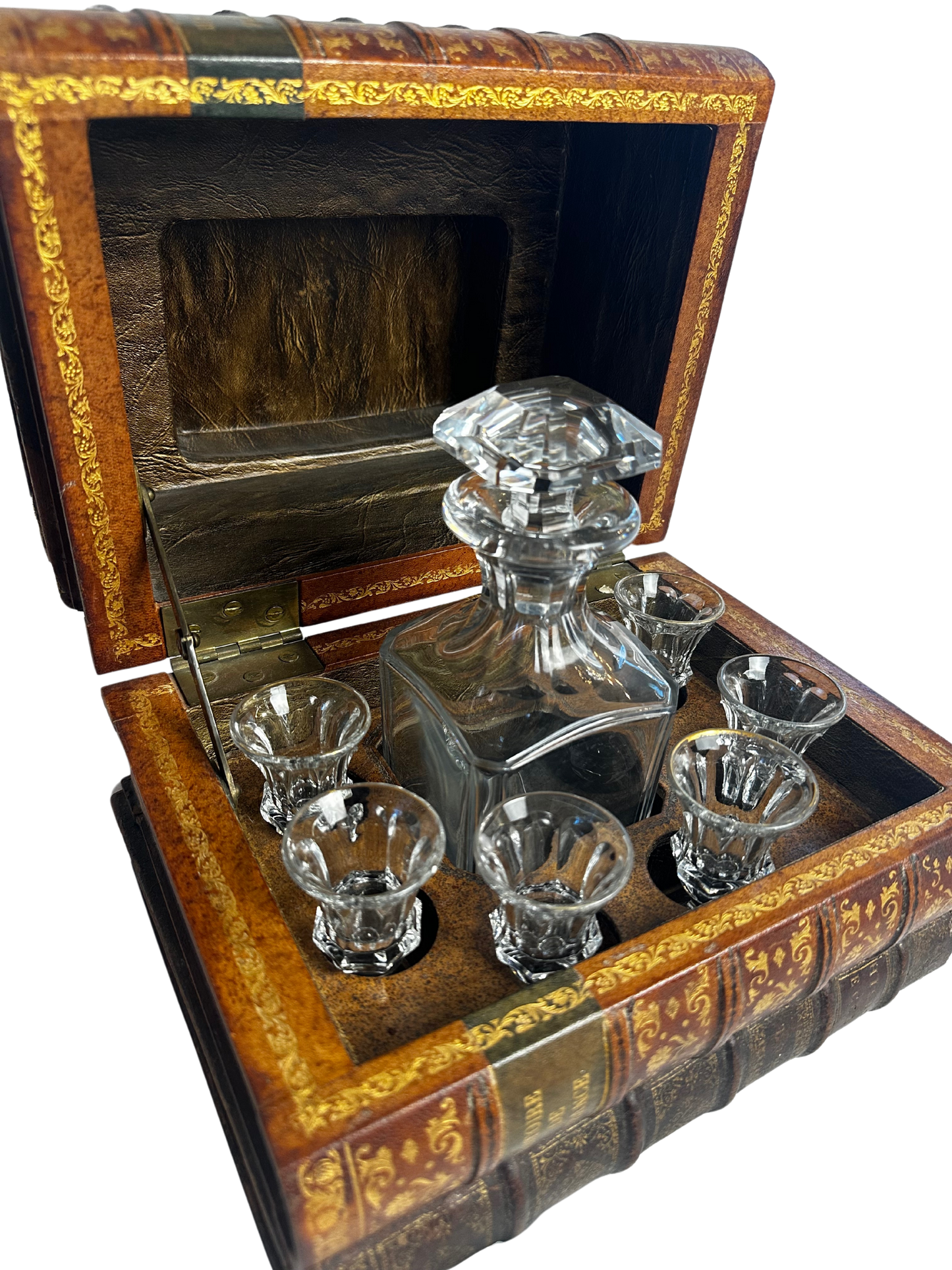
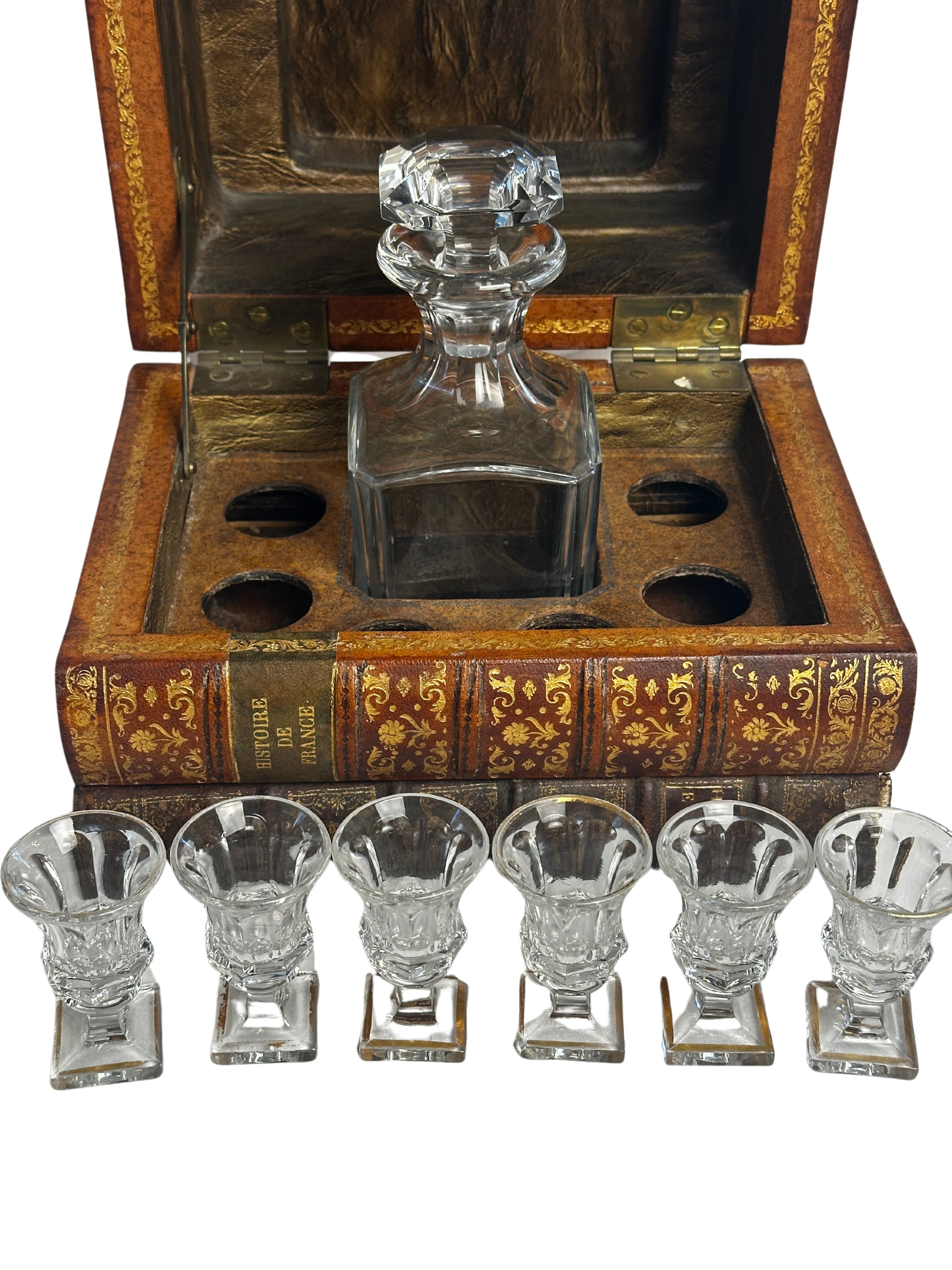
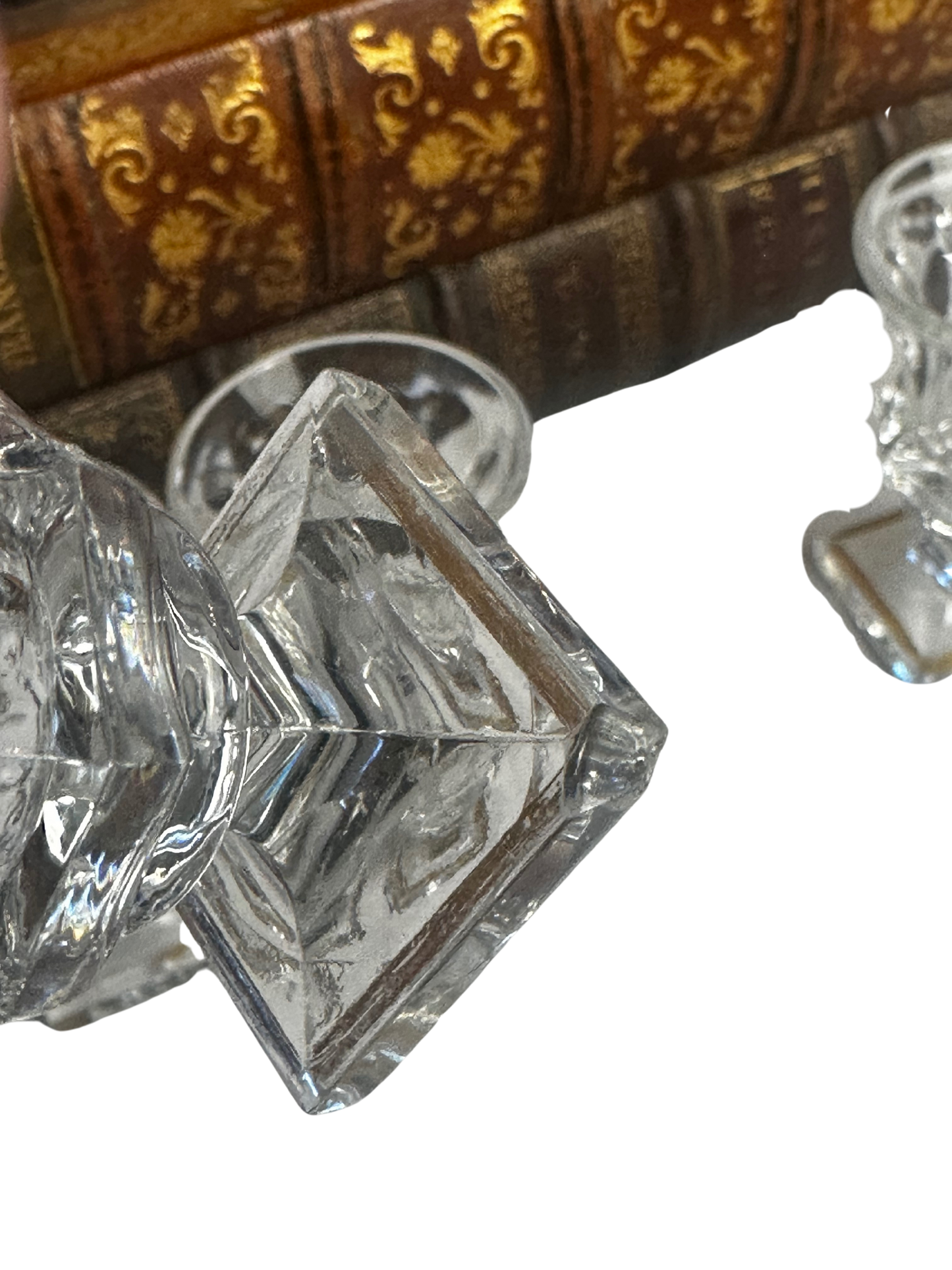
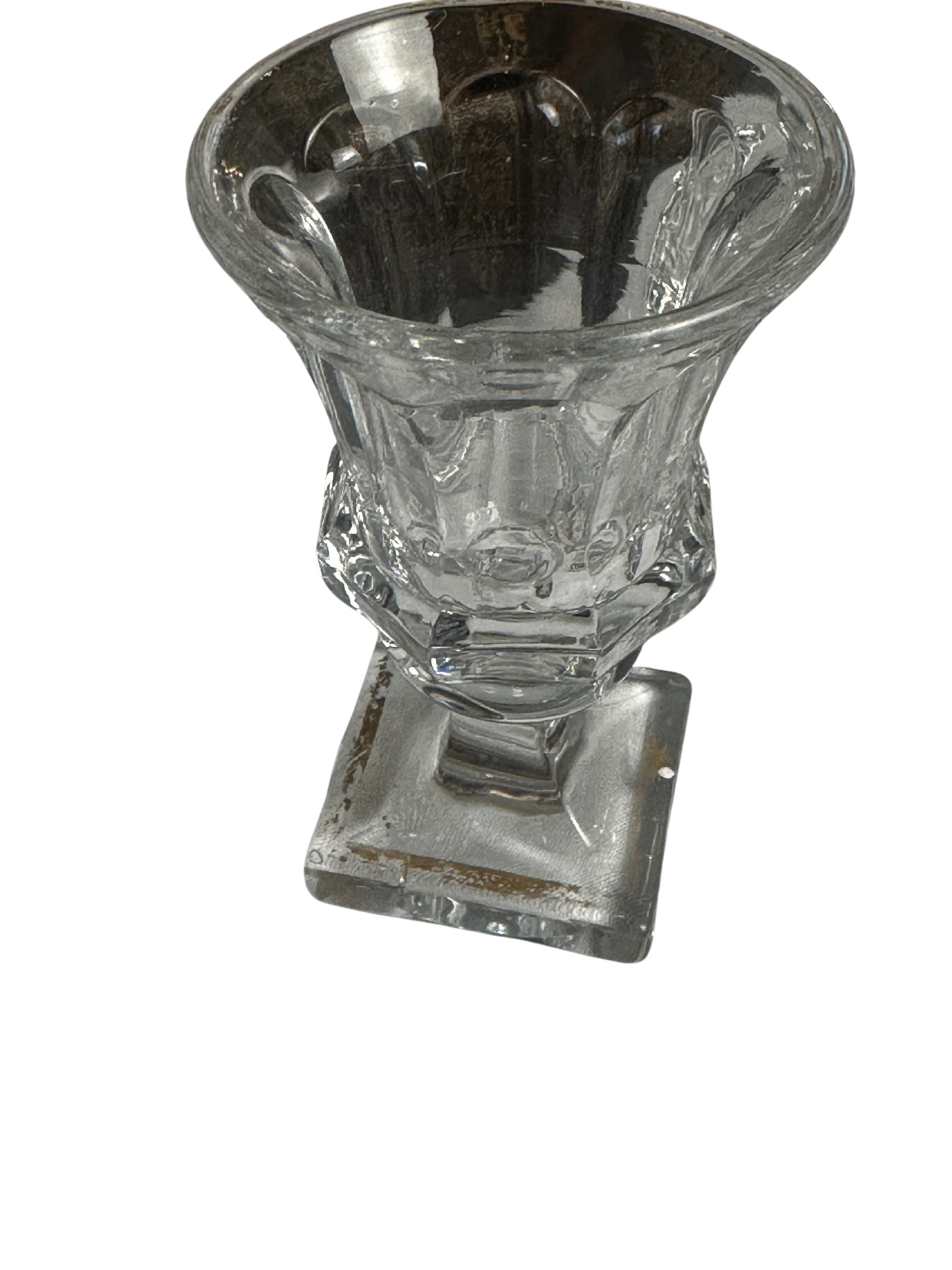
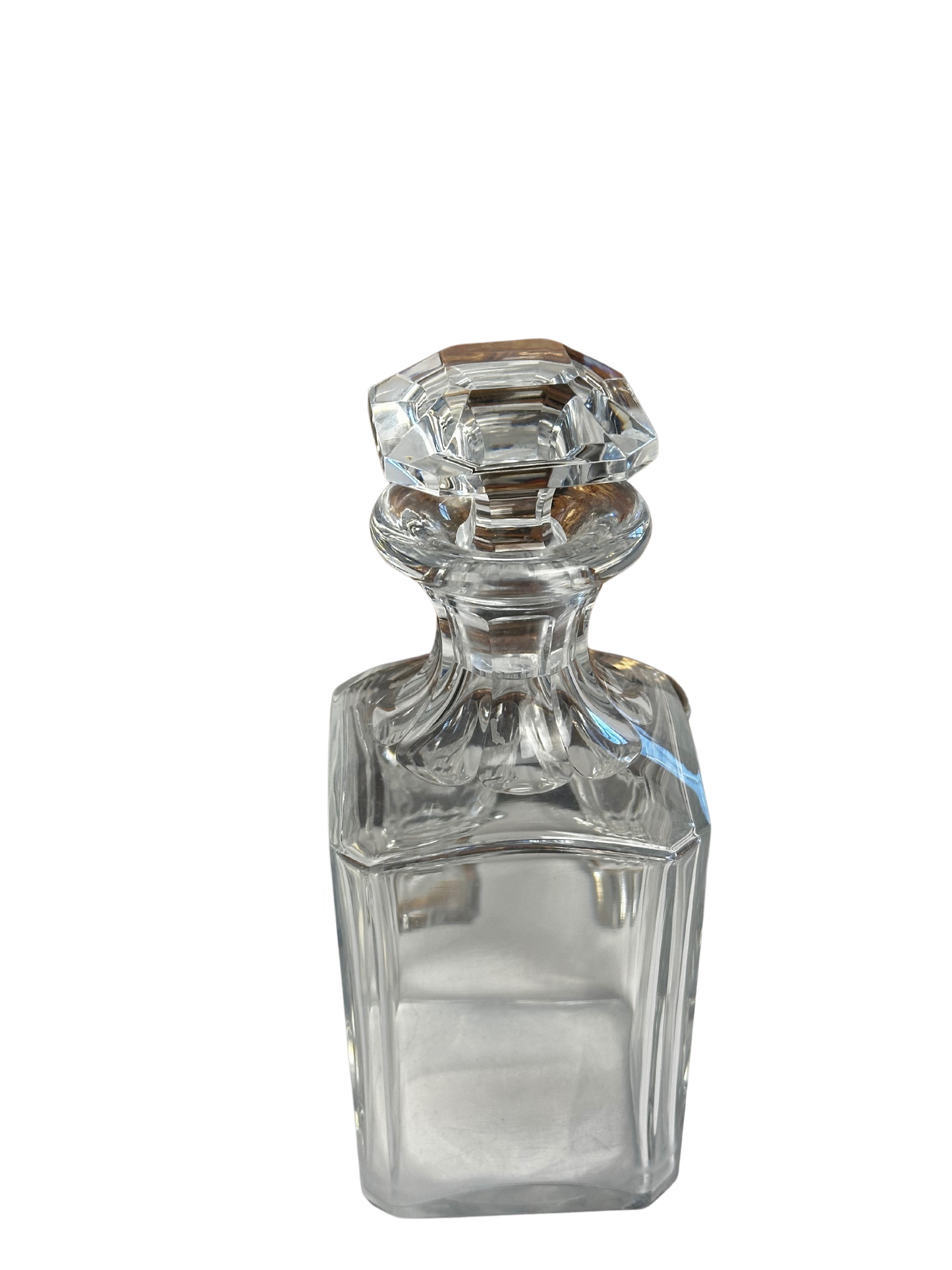
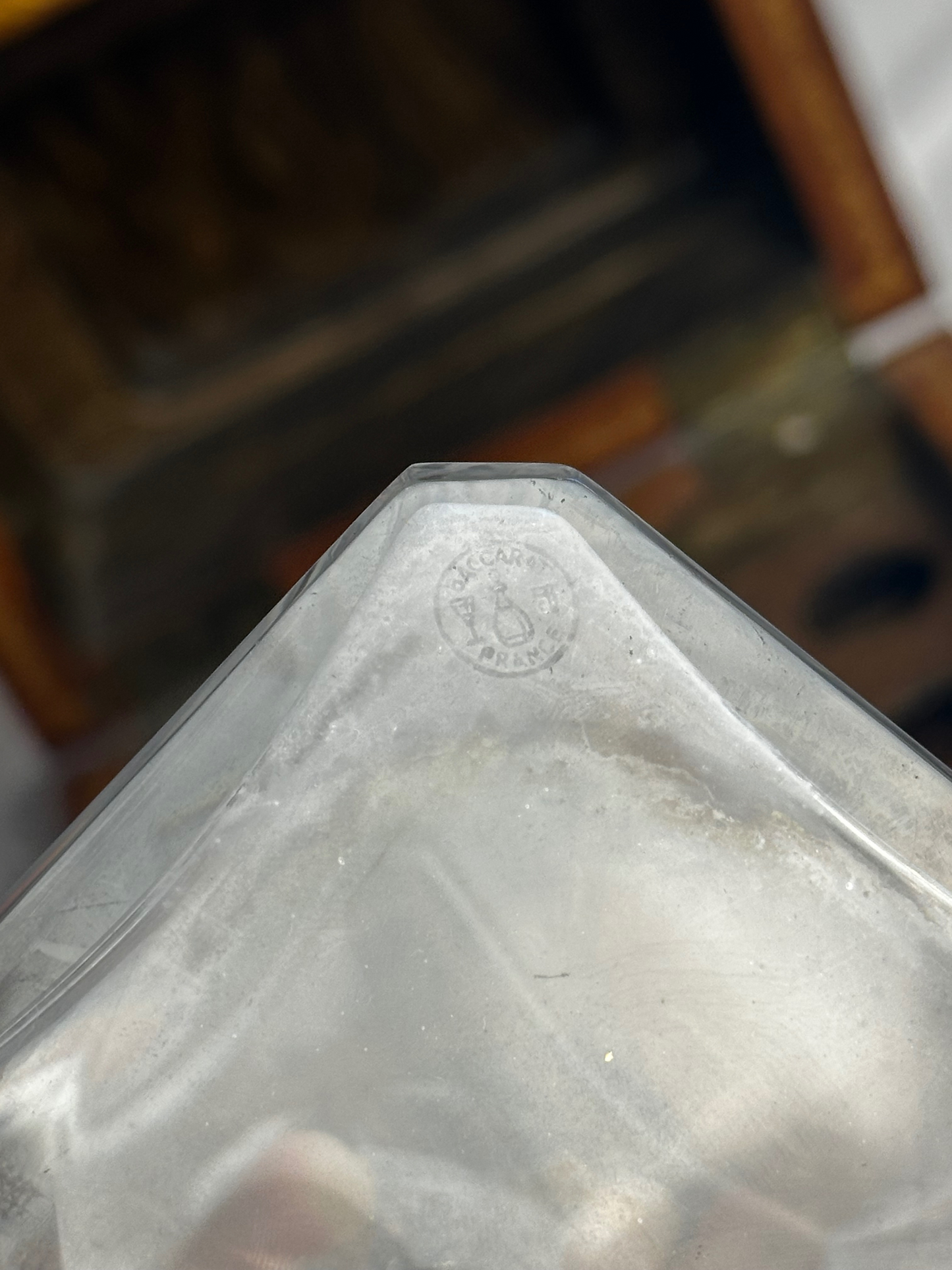
Antique Book Tantalus with Baccarat Decanter (Stamped) and Six (6) Glass Cordials with Some Gilding.
Baccarat decanter and cordials likely added later.
Antique Book Tantalus with Baccarat Decanter (Stamped) and Six (6) Glass Cordials with Some Gilding.
Baccarat decanter and cordials likely added later.
10.25"w x 8"d x 9"h (closed) / 10.25"w x 13"d x 12"h (open)
10.25"w x 8"d x 9"h (closed) / 10.25"w x 13"d x 12"h (open)
The Tantalus is a type of liquor cabinet or decanting set that has a historical connection to the Tantalus myth from Greek mythology, where the figure of King Tantalus was punished by having food and drink perpetually out of his reach. In the context of the Victorian period, the Tantalus cabinet evolved to serve both as a secure and decorative storage piece for spirits and as a status symbol.
This type of liquor cabinet was popular among the Victorian and Edwardian elite, who valued fine wine, brandy, and whiskey. A Tantalus often served as both a functional and decorative piece, adding a sense of luxury to the home and, especially, the study or drawing room.
Baccarat is one of the most prestigious glassware manufacturers in the world, renowned for its crystal craftsmanship and legacy of luxury.
Baccarat Glassworks was founded in 1764 in Baccarat, France, this company quickly gained a reputation for producing fine crystal products, including vases, chandeliers, goblets, and decanters. Baccarat’s commitment to quality and elegance made its pieces highly sought after among European royalty and the aristocracy.
A Book Tantalus is a specific variation of the traditional Tantalus in which the exterior is designed to resemble a book. This would have been particularly appealing to Victorian tastes, as it combined luxury with a sense of intellectualism or erudition.
The book form often serves to conceal the Tantalus's functional nature, making it appear more as a decorative object rather than a blatant display of wealth. The design was subtle yet sophisticated, meant to align with the Victorian penchant for elaborate but tastefully restrained decorations. The design may symbolize knowledge or prestige, as books were highly valued in Victorian society, often associated with a learned, cultured lifestyle. This design might have been an implicit reference to the importance of literature and education in upper-class society.
The Tantalus is a type of liquor cabinet or decanting set that has a historical connection to the Tantalus myth from Greek mythology, where the figure of King Tantalus was punished by having food and drink perpetually out of his reach. In the context of the Victorian period, the Tantalus cabinet evolved to serve both as a secure and decorative storage piece for spirits and as a status symbol.
This type of liquor cabinet was popular among the Victorian and Edwardian elite, who valued fine wine, brandy, and whiskey. A Tantalus often served as both a functional and decorative piece, adding a sense of luxury to the home and, especially, the study or drawing room.
Baccarat is one of the most prestigious glassware manufacturers in the world, renowned for its crystal craftsmanship and legacy of luxury.
Baccarat Glassworks was founded in 1764 in Baccarat, France, this company quickly gained a reputation for producing fine crystal products, including vases, chandeliers, goblets, and decanters. Baccarat’s commitment to quality and elegance made its pieces highly sought after among European royalty and the aristocracy.
A Book Tantalus is a specific variation of the traditional Tantalus in which the exterior is designed to resemble a book. This would have been particularly appealing to Victorian tastes, as it combined luxury with a sense of intellectualism or erudition.
The book form often serves to conceal the Tantalus's functional nature, making it appear more as a decorative object rather than a blatant display of wealth. The design was subtle yet sophisticated, meant to align with the Victorian penchant for elaborate but tastefully restrained decorations. The design may symbolize knowledge or prestige, as books were highly valued in Victorian society, often associated with a learned, cultured lifestyle. This design might have been an implicit reference to the importance of literature and education in upper-class society.
Late 19th Century / Early 20th Century
Late 19th Century / Early 20th Century
Paper, Cardboard, Wood, Glass, Crystal
Paper, Cardboard, Wood, Glass, Crystal
Sourced in Georgia
Created in France
Sourced in Georgia
Created in France
Wear to the books as expected with age.
Some chipping to glass cordials and loss of gilding.
Wear to the books as expected with age.
Some chipping to glass cordials and loss of gilding.
